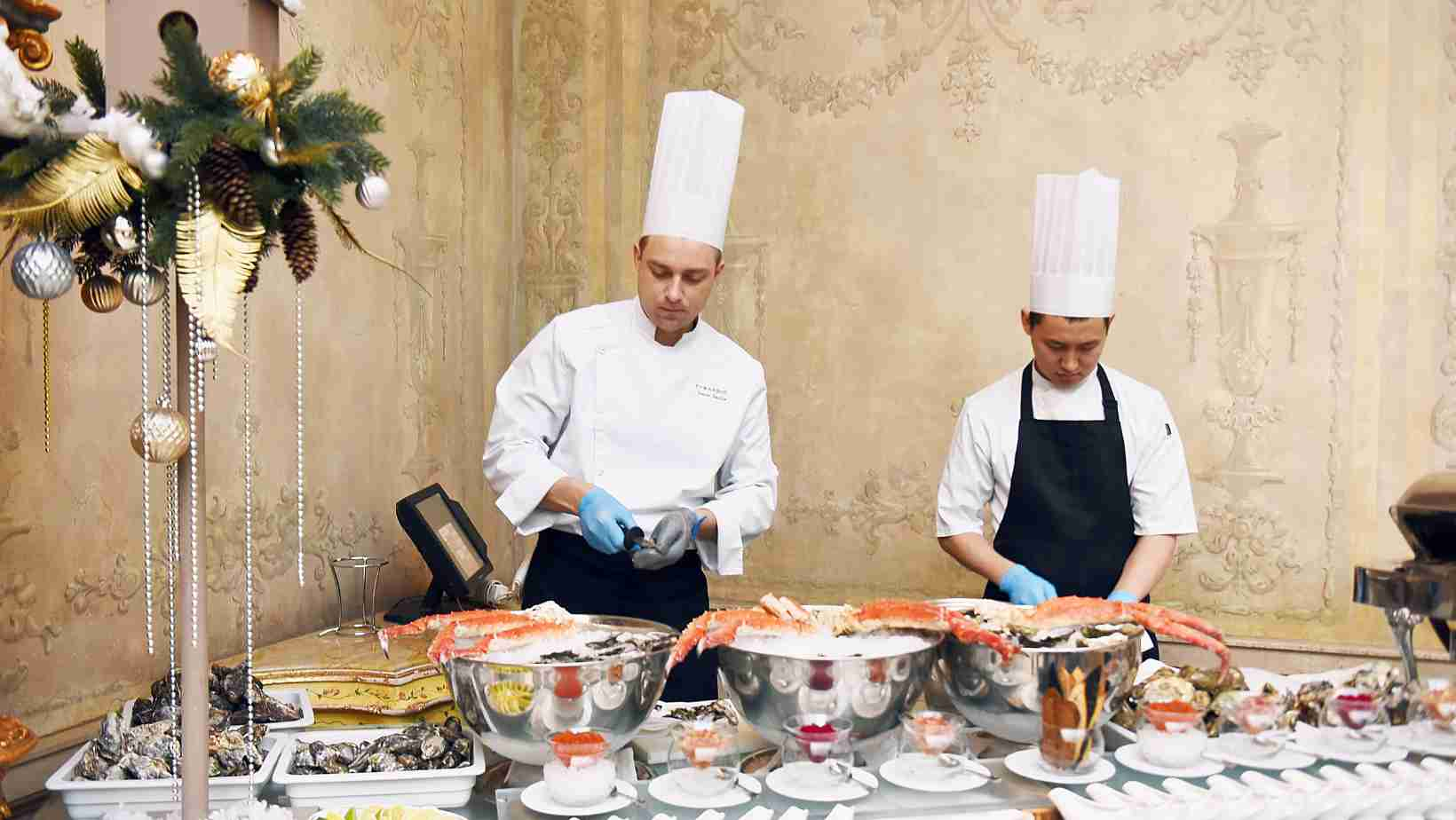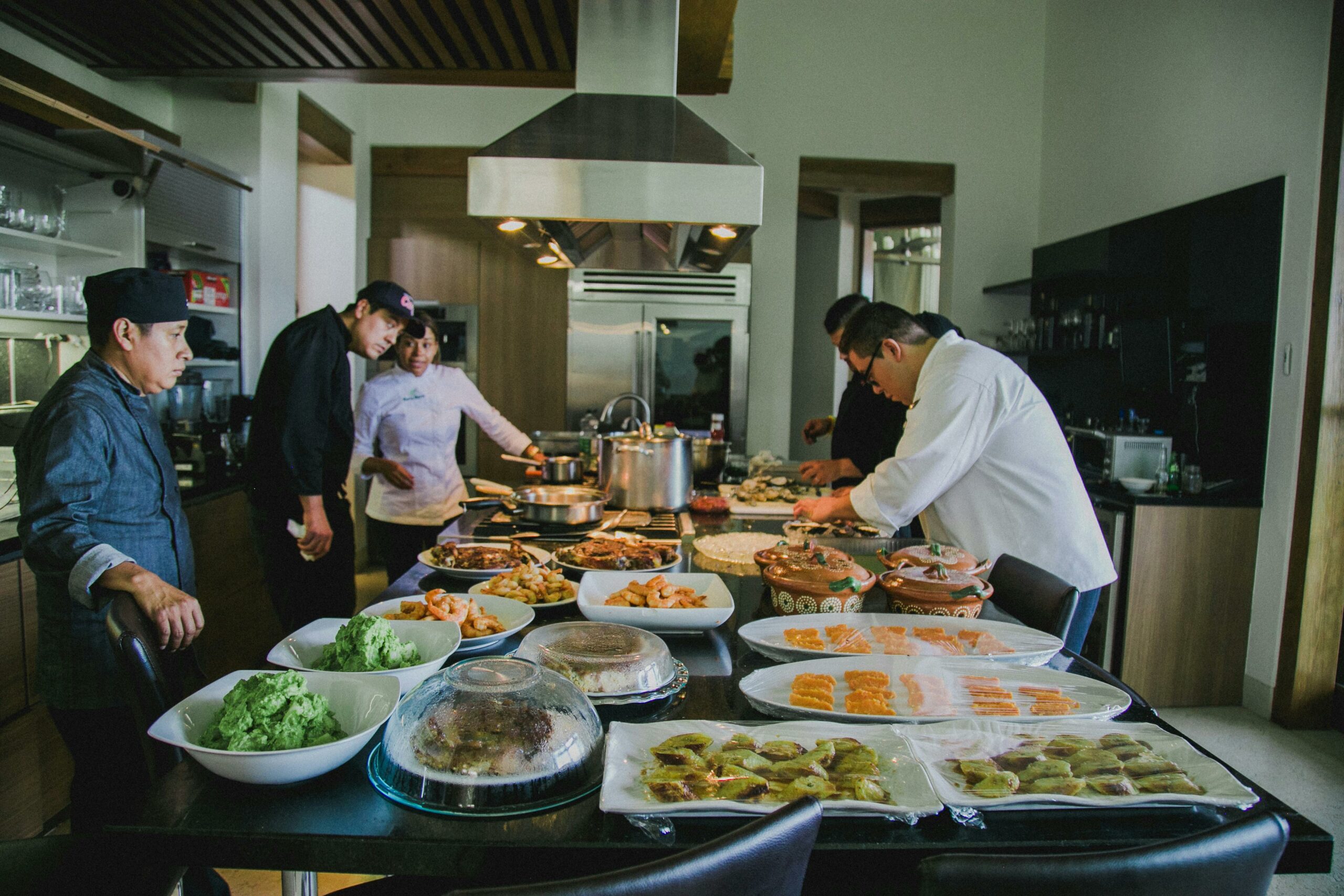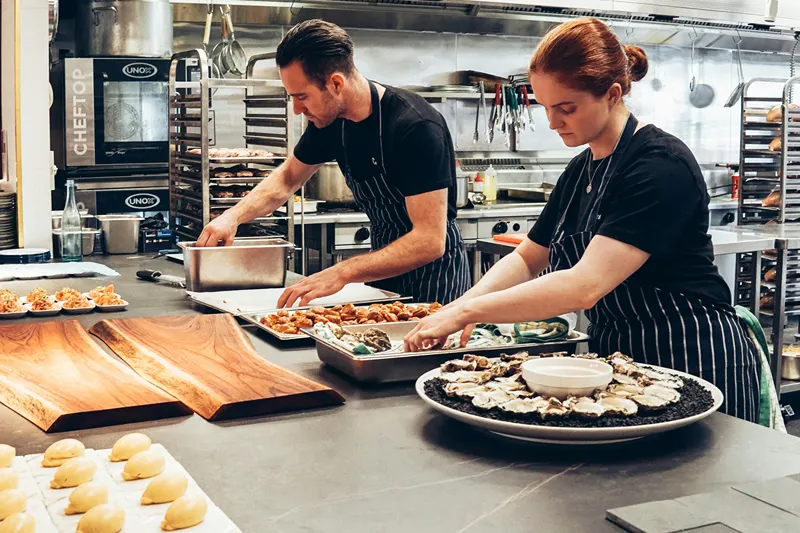Complete Guide to Getting Your Catering License in Florida
Florida Catering Licenses: Types, Processes and Costs
To legally run a catering business, you must know how to get a catering license in Florida. Below, we’ll explain the main types of licenses required for catering in the state.
1. Food Service Licence
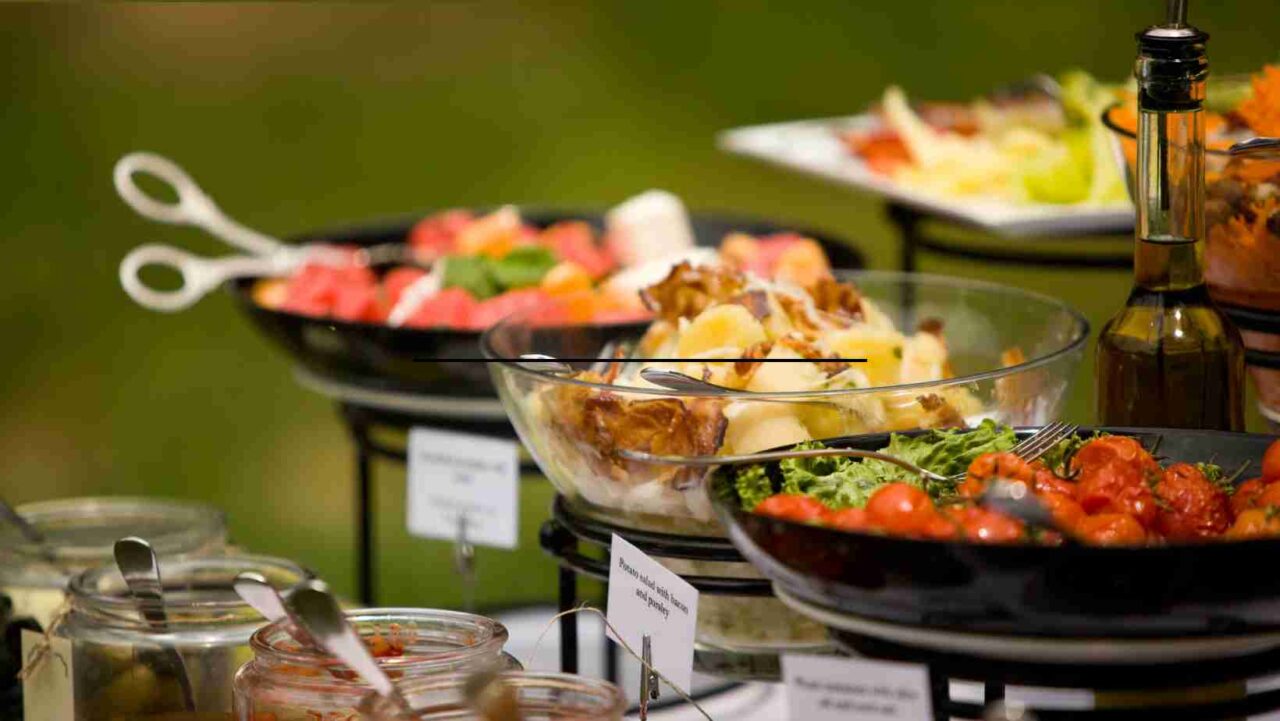
Florida catering license requirements mandate that businesses that prepare and serve food to the public are required to secure a Food Service License, governed by the regulatory authority, Florida Department of Business and Professional Regulation (DBPR). This licensing ensures compliance with food safety and sanitation standards. Depending on your type of business, different categories of licenses apply:
- Permanent Food Service (Seating): For businesses with a fixed location that provides seating for customers, such as restaurants.
- Permanent Food Service (Non-Seating): For businesses without on-site dining areas, such as takeout-only establishments.
- Catering License: For businesses that prepare and serve food at off-site events like weddings or corporate gatherings. If you already have a license for a restaurant or similar establishment, you can provide catering services without needing an additional catering business license in Florida.
- Mobile Food Dispensing Vehicle (MFDV): For food trucks or other mobile units that prepare and serve food.
- Vending Machine License: For self-service machines that dispense food or beverages.
- Theme Park Cart License: For food carts operating in theme parks or entertainment complexes.
- Culinary Education Program License: For schools or programs offering culinary training and serving food to the public as part of their education services.
- Temporary Food Service Event License: For vendors operating at short-term events like fairs, festivals, and community gatherings lasting 30 days or less. This catering license in Florida ensures vendors meet health and safety standards, such as maintaining proper food storage temperatures and providing handwashing facilities.
Cost: $300–$500, depending on facility size.
Application Process
- Submit a Florida catering license application to the DBPR.
- Provide details about your kitchen or food preparation facility.
- Schedule and pass a health inspection.
2. Catering Liquor License Florida

If you’re a caterer in Florida and planning to serve alcohol at events, you’ll need a license that aligns with your business model issued by the Division of Alcoholic Beverages and Tobacco(ABT). Here are the key types of alcohol catering licenses in Florida:
- 13CT License Florida (Caterer’s Alcohol License): For caterers serving beer, wine, and spirits at off-site events. At least 51% of the event’s revenue must come from food and non-alcoholic drinks. This license is ideal for full-service catering at weddings, corporate gatherings, and private events.
Cost: $1,250 for a permanent license.
- Temporary Alcohol Permit: For one-time events like fundraisers, festivals, or private gatherings. This permit is commonly used by caterers hosting occasional events or working with non-profits.
Cost: $25–$100 per event.
- 1COP License: For caterers serving only beer at events.
Cost: Typically $100–$400 annually, depending on location.
- 2COP License: For caterers serving both beer and wine at events.
Cost: Typically $150–$550 annually, depending on location.
- 4COP License (General Alcoholic Beverage License): Allows on-site consumption of wine, beer and spirits. This license is designed for fixed locations like bars and restaurants but may be relevant for caterers operating from a permanent venue that hosts events.
Cost: Prices vary widely due to the quota system, often reaching tens of thousands of dollars in high-demand areas.
Application Process
- Submit applications to the Division of Alcoholic Beverages and Tobacco (ABT).
- Provide proof of compliance with food service and alcohol regulations.
- Complete background checks and pay the required fees.
3. Additional Permits and Licenses Required
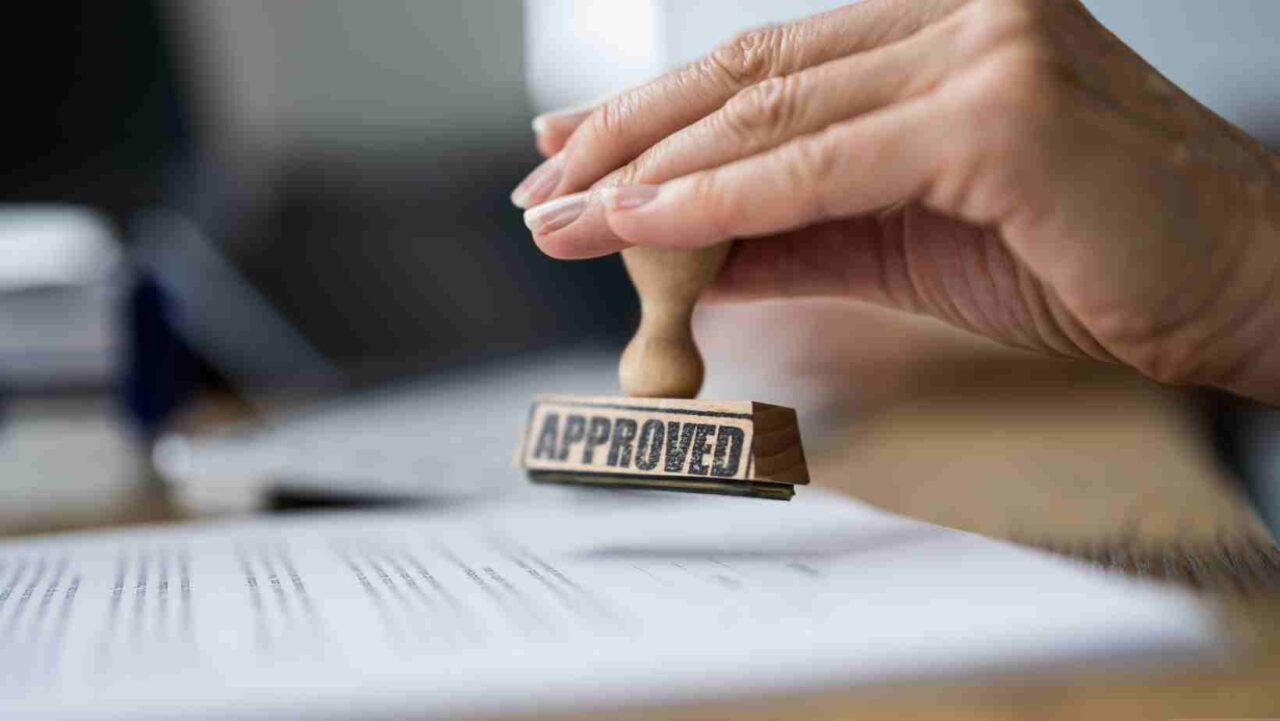
In addition to the Food Service and Alcohol Licenses, catering businesses in Florida must secure several other permits and certifications to operate legally. These ensure compliance with federal, state, and local regulations:
- Business Tax Receipt (BTR): Your local city or county requires you to have this to conduct business legally in a specific area. Formerly known as an Occupational License.
Cost: $25–$150 annually.
- Food Manager Certification: At least one person in your catering business must be certified in food safety practices. This ensures that proper hygiene and food handling standards are met.
Cost: $75–$150 for training and exam.
- Food Handler’s Permit: Required for all employees who handle or prepare food. This certification ensures the worker has knowledge of safe food handling practices.
Cost: $6.95–$10, depending on the training provider.
- Sales Tax Permit: Issued by the Florida Department of Revenue, this allows your business to handle the collection and submission of sales tax for food and beverages sold.
Cost: Free.
- Federal Employer Identification Number (EIN): A unique identifier issued by the IRS for tax purposes. It’s mandatory if you have employees or operate as a corporation or partnership.
Cost: Free.
- Zoning and Land Use Permits: These ensure that your business location adheres to local zoning regulations and is authorized for commercial food operations.
Cost: $50–$500.
- Health Department Permit: Required to ensure that your kitchen or food preparation facility meets health and sanitation standards.
Cost: Often included in Food Service License fees.
Whether you're hosting a special celebration dinner, looking for a chef during your holiday or weekly meal prep, we will match you to the perfect chefs.
Start here- Fire Department Permit: Necessary if your facility uses equipment such as stoves or ovens that pose a fire risk. Ensures compliance with fire safety regulations.
Cost: $50–$200.
Application Process
- Contact your city, county, or state offices for permit details specific to your location.
- Prepare necessary paperwork such as business registration, zoning approvals, and a description of operations.
- Apply through the relevant agencies (e.g., tax office, health department, fire department).
- For health or fire permits, book inspections and comply with safety standards.
- Pay applicable costs based on the type of permit and location.
Optimize Your Catering Business for Unstoppable Success
Securing the right catering license in Florida is the foundation for running a successful food business, but that’s just the start. Once you’ve cleared the licensing hurdles, the real challenge lies in growing your client base, managing bookings, and ensuring steady work. That’s where platforms like yhangry help private chefs and caterers unlock their full potential.
By signing up, which is free, yhangry connects you with thousands of clients actively searching for catering services, allowing you to focus on perfecting your craft rather than finding leads. With guaranteed payments within 24 hours, flexible job options, and comprehensive insurance coverage, the service makes managing your business stress-free.
What’s more? With a personalized webpage to showcase your offerings, you can effectively reach a broader client base and grow your business. Whether you’re just starting or looking to grow, it’s the perfect partner to take your career to the next level.
- Can I run a catering business from home in Florida?
-
Yes, you can establish and run a catering business from your home in Florida; however, there isn’t a specific “home catering business license in Florida.” Instead, you’ll need to obtain a standard Food Service License from (DBPR). Additionally, ensure your home kitchen meets commercial standards to pass a health inspection and complies with local zoning laws.
- Is catering subject to sales tax in Florida?
-
The state imposes a 6% sales tax on the total charge for catering, which includes the cost of food, beverages, preparation, and any related services. Additionally, local discretionary sales surtaxes may apply, varying by county. For instance, if a county has a 1% surtax, the total tax rate would be 7% in that area.
- How do you start a private chef business in the US?
-
To start a private chef business in the US, it is essential to establish your business legally by obtaining the necessary permits and covering all relevant catering license Florida costs. Create a portfolio to highlight your expertise, connect with potential clients, and promote your services via social media. You can also sign up for private platforms such as yhangry to gain bookings.
